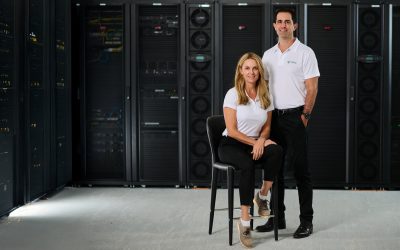
By Mia Filpo, Director of CMTG
When the average person thinks about IT, they picture softly whirring computers, flashing lights, and stereotypically, a dark den playing host to dozens of people tapping away at keyboards.
Often, the experts behind these keyboards are depicted as men, but the status quo is starting to shift even if it is slower than the industry should be demanding.
Currently, women make up about 28% of the tech workforce, which has come in leaps and bounds since the early 2000s when that figure was drastically lower, at just 9%.
With the rapid rise in digital technology and the recent uptick in artificial intelligence, it is unsurprising to see such a significant increase, but as always, more can be done.
As one of Australia’s leading IT solutions providers, CMTG encourages participation and inclusion across all aspects of our business.
We have 11% per cent female participation in our workforce, however as a leader at CMTG, I know we can improve.
Throughout my career, I have been supported as a woman entering and forging a career in a male-dominated workforce and enjoyed inspiration of several key women from my family who did the same.
Being the only female student studying mathematics and computing in my university course didn’t worry me. Nor did my numerous roles as an administrator and technician in the industry.
However, stepping into a leadership role at CMTG presented its challenges, including overcoming the stereotyping that occurred while trying to deliver those qualities and insights of a woman in a Director position.
Those experiences have led to the development of key initiatives aimed at increasing female participation. These initiatives include ensuring that women are paid fairly in line with their male counterparts, providing equal opportunities for continued training and specialisation, leading to career progression, and celebrating and promoting the achievements of women in our organisation.
These initiatives are more than just encouragement exercises for women in tech, they are paving a clear and visible pathway to success in this industry.
By incubating skill development and facilitating career progression, we will inevitably attract more women to this industry, but it must remain a priority if we are to diversify our workforces, our perspectives, and our clear value-add to business.
Aiding this is the ability to provide flexible working environments to ensure more women can return to work in the positions and workplaces they want to.
Many women still retain the majority of home and childcare responsibilities, which can act as a barrier to re-entering the workforce.
Providing flexibility with work schedules gives women more freedom to continue their career while balancing home life.
By the same token, flexible arrangements also grant men the ability to work part-time or adjust their hours so fathers can take on a larger share of home and childcare responsibilities.
As business owners, we can lead the charge in this space by designing and providing optimal work schedules for our staff.
Both men and women – particularly leaders – can also advocate for better workplace culture and awareness by calling out inappropriate behaviour, advocating for women lean in to challenges, and supporting them through these professional experiences.
This is why, for International Women’s Day in 2024, I encourage business owners to stand up, speak out, and inspire inclusion within the workplace.
At the end of the day, leaders in the business community are in privileged positions to advocate for change.
Our businesses, teams and clients will be better for it.




